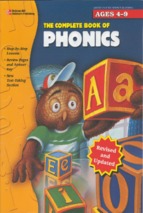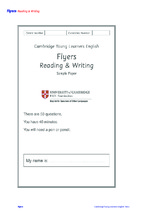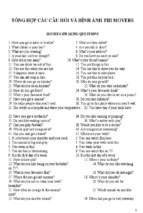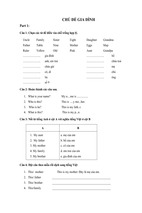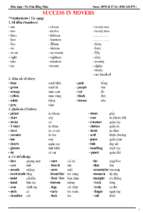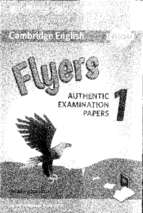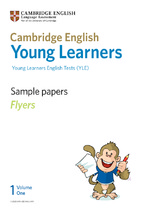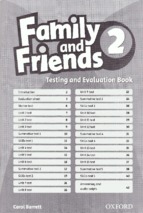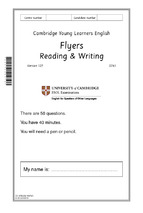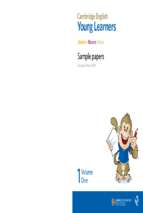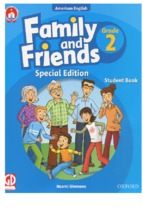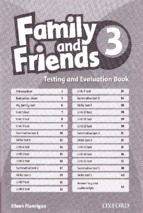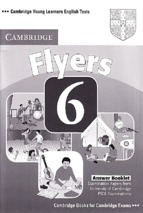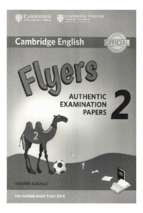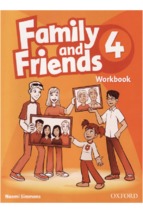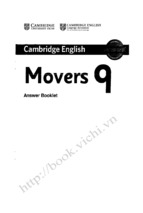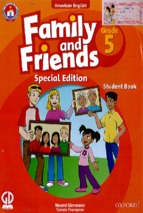A2+
CLASS AUDIO SCRIPT
STARTER UNIT
GET READY
Get Ready, Page 6, A Day in Dylan’s Life
Get Ready, Page 8, A Day in Dylan’s Life
Before School. Read the story.
After School. Read the story.
Track 1.01 / Bey_A2plus_U00_006_1.01.mp3
Track 1.04 / Bey_A2plus_U00_008_1.04.mp3
Dylan’s mum:
Dylan:
Teacher: Please be quiet!
Close your books! For homework write 100
words about your life.
Dylan: My teacher’s name is Miss Harris. I like her.
She’s always happy.
School finishes at 4 o’clock but I don’t go
home.
After school I usually go to a club. There are
a lot of clubs in our school. I like doing lots of
things. I like swimming but I don’t like acting.
I hate acting.
Hi. My name’s Dylan.
Anna:
Hello, Dylan. I’m Anna.
Dylan: This is Anna. She’s a new girl at the school.
I get home at 6 and we all have dinner. Dad
likes cooking a lot.
After dinner I do my homework and write about
my life. I include some false information ...
ha, ha!
I go to bed at 9 o’clock. Goodnight!
Good morning! Time to get up!
I’m Dylan. I wake up at 7 o’clock and I
get up at 7.10. (OK, I don’t always get
up then – maybe at 7.20 or 7.30)
Hurry up!
I haven’t got much time before school.
First I clean my teeth. Our house has
only got one bathroom – and I’ve got
two sisters.
Dylan’s mum: Hurry up!
Dylan:
Then I get dressed. At my school we
wear black trousers (not jeans!), a white
shirt, a green sweatshirt and black
shoes (not trainers!) Ugh! Some girls
wear a skirt or a dress.
I have breakfast with my dad and
watch TV.
Dylan’s mum: Have you got your house key and your
lunchbox?
Dylan:
I pack my bag for school. Yuck, there
are lots of horrible things!
I go to school by bus with my sisters.
Dylan’s sister: Hurry up!
Dylan:
I meet my friend on the bus. We get
to school at 8.30 – just in time.
Get Ready, Page 6, Exercise 2
Track 1.02 / Bey_A2plus_U00_006_1.02.mp3
1
2
3
4
5
Dylan has got a mum and dad.
He’s got two sisters. He hasn’t got any brothers.
Dylan’s dad has got a brother. He hasn’t got a sister.
Dylan and his sisters haven’t got any cousins.
But they’ve got four grandparents.
Get Ready, Page 7, Exercise 4
Track 1.03 / Bey_A2plus_U00_007_1.03.mp3
1
2
3
4
5
6
exercise book
lunchbox
timetable
textbook
pencil case
house key
Get Ready, Page 8, Exercise 1
Track 1.05 / Bey_A2plus_U00_008_1.05.mp3
1
2
3
4
5
6
Open your books at page 24.
Can you repeat that, please?
I don’t understand the question.
Can I go to the bathroom, please?
Can I borrow a pen, please?
How do you say ‘pizarra’ in English?
Get Ready, Page 8, Exercise 2
Track 1.06 / Bey_A2plus_U00_008_1.06.mp3
1
2
3
4
5
6
He
He
He
He
He
He
likes cooking.
likes listening to music.
likes reading.
likes swimming.
doesn’t like acting.
doesn’t like speaking Spanish.
Get Ready, Page 9, Exercise 3a
Track 1.07 / Bey_A2plus_U00_009_1.07.mp3
Anna: What time is it?
Dylan: It’s 4:15. Why do you want to know?
Anna: I want to go to the drama club. When does it
start?
Dylan: At 4:30.
Anna: Where does the club meet? Do you know?
Dylan: In the school hall.
Anna: How long does it last?
Dylan: 45 minutes.
Anna: Who’s the teacher?
Dylan: Miss Harris. She’s my class teacher.
Anna: Do you like drama?
Dylan: Um … yes, I love it.
This page has been downloaded from www.macmillanbeyond.com
© Macmillan Publishers Limited 2014. This sheet may be photocopied and used within the class.
1
A2+
CLASS AUDIO SCRIPT
UNIT 1
SWITCH ON
Unit 1, Page 10, Exercise 3
Unit 1, Page 14, Exercise 3
Track 1.08 / Bey_A2plus_U01_010_1.08.mp3
Track 1.12 / Bey_A2plus_U01_014_1.12.mp3
1
2
3
4
5
6
7
8
9
10
11
12
1
2
3
4
5
6
7
8
9
10
maps
games
notes
messages
calculator
calendar
compass
social networking
web browser
mail
app store
videos
Unit 1, Page 10, Exercise 4a
Track 1.09 / Bey_A2plus_U01_010_1.09.mp3
microphone
headphones
speaker
screen
monitor
printer
webcam
USB port
mouse
keyboard
Unit 1, Page 14, Exercises 5b and 7
Track 1.13 / Bey_A2plus_U01_014_1.13.mp3
Tom:
maps
Unit 1, Page 10, Exercise 4b
Track 1.10 / Bey_A2plus_U01_010_1.10.mp3
app store, calculator, calendar, camera, laptop, tablet
Unit 1, Page 12, Reading
Track 1.11 / Bey_A2plus_U01_012_1.11.mp3
Do you need to switch off more?
How often do you do nothing? For a lot of young people
the answer is never. When we sit down and relax, we’re
always doing something. We watch TV, listen to music
or send text messages. We sometimes do all three at
the same time. We hardly ever just sit quietly and stop
thinking. But our brain uses a lot of energy during the
day and gets tired. We need to stop thinking and switch
off from time to time. Switching off helps us to relax
completely and feel full of energy again.
Do you need to switch off more? Answer the questions
in the survey to find out.
Sally:
Tom:
Sally:
Tom:
Sally:
Tom:
Sally:
Tom:
Sally:
Tom:
Sally:
Jan:
Tom:
Jan:
Tom:
Jan:
Tom:
Jan:
Tom:
Welcome to Newtown School TV! Here you can
watch video reports from different schools in
Newtown. My name’s Tom Swift, and I study at
Farm Wood school.
Today I’m in an IT class at my school, and I’m
here to find out about the Raspberry Pi. What
exactly is the Raspberry Pi? It sounds like
something you eat.
Well, we just call it the Pi, and it’s a computer.
Is this it? It’s very small.
That’s right. It’s a very simple computer. But it
works really well!
So tell me about it.
Well, you can connect it to a monitor or a TV,
and it has USB ports to connect a keyboard
and mouse.
Can we switch it on now?
Yes, of course.
Can it connect to the internet?
Yes. There’s a port for a fast internet
connection.
Right. So what do you use the Pi for?
We use it to learn how computers work.
And sometimes we use it to write code.
Code?
The instructions for a computer. With code, we
can create our own games and programs.
That’s amazing. I have no idea how computers
work.
The Pi may be small, but it can do lots of
things! And it’s from the UK. It’s a British
invention.
Right. Great. One final question. Does it make
lunch?
Sorry?
Talking about the Raspberry Pi is making me
really hungry!
This page has been downloaded from www.macmillanbeyond.com
© Macmillan Publishers Limited 2014. This sheet may be photocopied and used within the class.
2
A2+
CLASS AUDIO SCRIPT
UNIT 1
SWITCH ON
Unit 1, Page 17, Exercises 2 and 3
Unit 1, Page 17, Exercise 5
Track 1.14 / Bey_A2plus_U01_014_1.14.mp3
Track 1.15 / Bey_A2plus_U01_017_1.15.mp3
Marc:
1
Marc:
2
Vicky:
3
Vicky:
4
Marc:
5
Kate:
6
Kate:
Vicky:
Marc:
Kate:
Marc:
Kate:
Marc:
Ben:
Vicky:
Ben:
Hey guys. Watch this!
So, what do you think about it?
I think it’s good. I don’t think it’s very original,
but it’s funny.
What do you think, Kate?
I don’t know. I think it’s quite funny, but it’s also
a bit cruel.
Cruel?
Yes. Do you think the cat’s happy?
No, maybe not.
Hey, what are you doing with my tablet?
We’re watching that video.
So what do you think about it? Just funny, or
really, really funny?
What do you think about it?
I think it’s good.
I don’t think it’s very original.
What do you think?
I don’t know.
Do you think the cat’s happy?
Unit 1, Page 17, PHRASEBOOK
Track 1.16 / Bey_A2plus_U01_017_1.16.mp3
Ask for opinions
What do you think about ... ?
What do you think?
Do you think ... ?
Give opinions
I think it’s/they’re funny/boring/expensive ...
I don’t think ...
I don’t know.
This page has been downloaded from www.macmillanbeyond.com
© Macmillan Publishers Limited 2014. This sheet may be photocopied and used within the class.
3
A2+
CLASS AUDIO SCRIPT
UNIT 2
HOME AND AWAY
Unit 2, Page 20, Exercise 2
Track 1.17 / Bey_A2plus_U02_020_1.17.mp3
1
2
3
4
5
6
d
f
b
c
e
a
Ethan is making his bed.
Linda is loading the dishwasher.
Alyssa is laying the table.
Nick is tidying his room.
Tyler is doing the washing.
Josh is cleaning the floor.
Unit 2, Page 20, Exercise 3
Track 1.18 / Track 1.1Bey_A2plus_U02_020_1.18.mp3
1
Josh:
Do you want any help with the dishes, Alyssa?’
Alyssa: No, Josh. You finish clearing the table.
2
Nick:
Ethan:
Nick:
3
Tyler:
Linda:
Tyler:
Where are you going, Ethan?
I’m taking out the rubbish. Back in a minute,
Nick.
Wait for me. I’m sorting the recycling.
In New York, it’s common for several generations of a
family to live in the same home. One in ten households
has three generations or more. As Ethan explains, living
together has its advantages and disadvantages.
‘We have a lot of relatives in New York and our home
is like a meeting place for everyone. Every day we see
our cousins, uncles, aunts … It’s a fun place,’ he says.
But communication can be difficult. ‘My dad is originally
from China and my grandad doesn’t speak much
English. And we’re just kids, you know. We see life in a
different way. So sometimes we argue. But I think that’s
normal.’
Ethan doesn’t only argue with his father and grandfather.
‘There isn’t a lot of space here and I share a bedroom
with my brother, Nick. So sometimes it’s hard, you know,
to be alone … to study. And Nick never tidies the room.
Mom says, “How can you live in this mess?” Mom and I
argue a lot. I forget to do things like feeding the fish or
sorting the recycling.’
Unit 2, Page 23, Exercise 1
Linda! I can’t hear the radio!
I can’t hear you Tyler.
What did you say?’
Nothing, Linda.
Unit 2, Page 20, Exercise 4
Track 1.23 / Bey_A2plus_U02_023_1.23.mp3
Jake:
Beth:
Jake:
Beth:
Jake:
Track 1.19 / Bey_A2plus_U02_020_1.19.mp3
1
2
3
4
5
6
Josh is clearing the table.
Alyssa is doing the washing-up.
Nick is sorting the recycling.
Ethan is taking out the rubbish.
Tyler is doing the ironing.
Linda is vacuuming.
Unit 2, Page 20, Exercise 7a
Track 1.20 / Bey_A2plus_U02_020_1.20.mp3
ironing
Unit 2, Page 20, Exercise 7b
Track 1.21 / Bey_A2plus_U02_020_1.21.mp3
cupboard, hour, island, knife, listen, Wednesday
Unit 2, Page 22, Reading
Track 1.22 / Bey_A2plus_U02_020_1.22.mp3
It’s 6:15pm in New York City. In a third-floor apartment
on Broome Street, Liyu Wang is cooking dinner for his
family. His wife, Victoria, is laying the table and their
two sons – Ethan, age 15, and Nicholas, age 14 – are
tidying their room. The boys’ sister – Alexis, age 11 – is
in the living room, doing her homework. Her grandfather
is sitting on the sofa, watching television, while Felix the
cat is watching the family’s pet fish.
Beth:
Hi, Beth. What are you doing?
I’m revising for a maths exam.
You work too hard, Beth.
I need your help. Where are you?
At the moment I’m standing outside the
swimming pool with Pete. We’re waiting with
Mel and Sue. We always swim on Thursdays,
remember? What’s the problem?
I don’t understand some of the calculations.
Unit 2, Page 24, Exercises 2b and 4
Track 1.24 / Bey_A2plus_U02_024_1.24.mp3
Keira:
Sal:
Jack:
Sal:
Jack:
Keira:
Jack:
Keira:
Jack:
Keira:
Jack:
Sal:
Keira:
Sal:
Keira:
Hiya Sal.
Hi.
What’s up? You don’t look very happy.
Nothing.
We’re trying to arrange a practice on Saturday,
but it’s really difficult. I’m going ice skating in
the morning …
… and I’m meeting Lizzie and Sharn in the
afternoon.
But you’re only going shopping with them.
So?
So why can’t you go shopping in the morning?
Why can’t you go ice skating in the afternoon?
Because I’ve got a class. I can’t change it.
Anyway, what about you Sal? What are you
doing on Saturday?
We need to talk.
What about?
I’m leaving the group.
What? Sal, you can’t. We’re playing at the
school concert in two weeks’ time. You’re the
singer!
This page has been downloaded from www.macmillanbeyond.com
© Macmillan Publishers Limited 2014. This sheet may be photocopied and used within the class.
4
A2+
CLASS AUDIO SCRIPT
UNIT 2
HOME AND AWAY
Jack:
Sal:
Jack:
Sal:
Keira:
Tom:
Keira:
Tom:
Keira:
Tom:
Why do you want to leave?
You really don’t know?
No, I don’t.
Here’s Tom. Ask him.
Sal, don’t go. Sal, wait!
Hi guys. What’s up?
It’s Sal. She’s leaving the group.
I know.
You know? Why didn’t you tell us?
It’s a bit difficult. We’re not going out any
more.
Keira:
You’re kidding! Since when?
Tom:
Since yesterday.
Keira:
But we’re playing in two weeks. And she’s
the singer. We can’t play without her.
Jack:
Watch out. Here comes Gibbons.
Keira:
Hello, sir.
Mr. Gibbons: Hello Keira, Jack, Tom. What are you all
doing here? Don’t you have homes to go to?
Keira:
We’re talking about the concert, sir.
Mr. Gibbons: Ah! I have some good news. The local
radio station is coming to record it.
Jack:
Oh, no!
Mr. Gibbons: What’s wrong?
Tom:
There’s a problem, sir.
Unit 2, Page 25, Exercise 1
Track 1.25 / Bey_A2plus_U02_025_1.25.mp3
Mario:
Fiona:
Mario:
Fiona:
Mario:
Fiona:
What are you doing at the weekend? The
football team’s playing on Saturday.
Where are you playing? Is it a home game?
No. We’re playing away in Newtown. Can you
come?
I can’t. I’m helping dad clean the house this
weekend. My cousin is coming to stay next
week.
How long is he staying?
He’s a she actually. And she’s leaving at the
end of the month.
Unit 2, Page 27, Exercise 2
Track 1.26 / Bey_A2plus_U02_027_1.26.mp3
Kate:
Kate:
Kate:
Kate:
Kate:
Kate:
Kate:
Kate:
Kate:
Hello?
Hi Matt. Keith isn’t here at the moment.
Yes. Hang on. Let me get a pen.
OK. I’m ready.
Sorry? Can you say that again? It’s a bad line.
How do you spell that?
Outside the Treetop coffee shop. At 8 o’clock.
… Sorry. You’re breaking up. I can’t hear you.
Could you repeat that?
555 348 779. OK.
Bye.
Unit 2, Page 27, Exercise 3b
Track 1.27 / Bey_A2plus_U02_027_1.27.mp3
1
Sorry? Can you say that again?
2
It’s a bad line.
3
How do you spell that?
4
Sorry. You’re breaking up.
5
I can’t hear you.
6
Could you repeat that?
Unit 2, Page 27, Exercise 5
Track 1.28 / Bey_A2plus_U02_027_1.28.mp3
Kate:
Matt:
Kate:
Matt:
Kate:
Hello?
Hi. It’s Matt. Can I speak to Keith?
Hi Matt. Keith isn’t here at the moment.
Can I leave a message?
Yes. Hang on. Let me get a pen.
Kate:
Matt:
Kate:
Matt:
OK. I’m ready.
Tell him we’re ...
Sorry? Can you say that again? It’s a bad line.
I’m calling from the train. I said we’re all
meeting at 8 outside the Treetop coffee shop.
How do you spell that?
T-r-e-e-t-o-p.
Outside the Treetop coffee shop. At 8 o’clock.
… Sorry. You’re breaking up. I can’t hear you.
Could you repeat that?
If there’s a problem, he can call me on 555
348 779.
555 348 779. OK.
Thanks, Kate. Bye.
Bye.
Kate:
Matt:
Kate:
Matt:
Kate:
Matt:
Kate:
Unit 2, Page 27, PHRASEBOOK
Track 1.29 / Bey_A2plus_U02_027_1.29.mp3
Phone phrases
Hello. It’s ... Can I speak to … ?
I’m calling from …
Hang on.
Can I leave a message? / Do you want to leave a
message?
She/He can call me on …
Check you understand
Could you repeat that?
Can you say that again?
How do you spell that?
This page has been downloaded from www.macmillanbeyond.com
© Macmillan Publishers Limited 2014. This sheet may be photocopied and used within the class.
5
CLASS AUDIO SCRIPT
UNIT 2
A2+
HOME AND AWAY
PROGRESS CHECK 1 & 2, Page 31, Listen
Track 1.30 / Bey_A2plus_U01_2_031_1.30.mp3
Narrator:
Listen and choose the correct picture
for each question. Put a tick in the box
below it.
Narrator:
Announcer:
1 How much is the computer?
This week only! This super computer with
monitor, keyboard and printer usually
costs 499 euros. But you can save 200
euros – yes, 200 euros! – and pay only
299 euros. That’s right 299. Only at
Computerland.
Narrator:
Girl:
Boy:
Girl:
Boy:
2 Where is Danny?
Hi Danny, can you hear me? I’m …
Can you say that again?
I’m in the street. I’m waiting for the bus.
OK. I’m at the cinema. I’m waiting for
you!
Narrator:
3 Where are the speakers and what are
they talking about?
Excuse me … Can I ask you some
questions?
Er … What about?
Mobile phones. How many text messages
do you send every day?
Er … well … about forty, fifty maybe. Oh,
sorry, I have to go, I’ve got a message.
Reporter:
Teen:
Reporter:
Teen:
Narrator:
Girl 1:
Girl 2:
Girl 1:
Narrator:
Boy:
Girl:
Boy:
Narrator:
4 What are the girls doing tomorrow
afternoon?
Do you want to go shopping tomorrow
afternoon?
I hate shopping on Saturdays. It’s always
busy. What about ice skating?
Erm … yeah, OK. I’m going to judo in
the morning but the lesson finishes at
11.30.
5 Which instrument does the boy want to
play?
I want to learn an instrument but I don’t
know which one. I don’t want to play the
guitar … What do you think?
Well, my brother plays the piano and my
sister plays the drums. I think the piano
sounds much nicer!
Mmm, playing the drums is a good idea.
I think the piano’s a bit boring.
Now, listen again.
This page has been downloaded from www.macmillanbeyond.com
© Macmillan Publishers Limited 2014. This sheet may be photocopied and used within the class.
6
A2+
CLASS AUDIO SCRIPT
UNIT 3
WILD WORLD
Unit 3, Page 32, Exercise 2
Track 1.31 / Bey_A2plus_U03_032_1.31.mp3
1
2
3
4
5
6
coast
desert
forest
ice sheet
lake
savannah
Unit 3, Page 32, Exercise 6
Track 1.32 / Bey_A2plus_U03_032_1.32.mp3
1
2
3
4
5
6
countryside
field
flower
grass
hill
stream
Unit 3, Page 33, Exercise 7
Track 1.33 / Bey_A2plus_U03_033_1.33.mp3
The countryside near my home is very beautiful. I often
go to a big field and lie down on the grass. I close my
eyes and listen to the water in the stream and smell the
flowers. Sometimes I walk up the hill to look at the view.
Unit 3, Page 34, Reading
Track 1.34 / Bey_A2plus_U03_034_1.34.mp3
Have you got the Felix Factor?
When Felix Finkbeiner was thirteen years old, he made a
speech at the United Nations in New York. He spoke in
English and his message was simple – save the world’s
forests. How did a boy from Germany become ‘an
environmental superstar’?
The story starts in 2007 when Felix did a project on
climate change at his primary school in Starnberg, near
Munich in Germany. He saw some information online
about Wangari Maathai, a Kenyan woman. She started
a tree-planting campaign in 1977 and won the Nobel
Peace Prize in 2004. Felix thought her campaign was
interesting and he decided to talk about it in class.
At the beginning of 2011, the International Year of
Forests, Felix made his speech at the United Nations.
He asked world leaders to ‘stop talking – start planting’.
In the same year his campaign reached its goal of
planting one million trees in Germany. He also travelled
to Kenya and met Wangari Maathai. And it all began with
a school project.
Unit 3, Page 35, Exercise 4a
Track 1.35 / Bey_A2plus_U03_035_1.35.mp3
saw, thought, talked, taught, bought
Unit 3, Page 35, Exercise 4b
Track 1.36 / Bey_A2plus_U03_036_1.35.mp3
saw, thought, talked, taught, bought
Unit 3, Page 36, Exercise 3b
Track 1.37 / Bey_A2plus_U03_036_1.37.mp3
Last year I was in Florida with my family. One day we
were walking through some long grass near a river when
I saw a snake. The snake was eating a really fat frog!
It was holding the frog’s head in its mouth – but the
frog wasn’t moving. It was horrible! As we were walking
away, I looked back – the snake was still lying there but I
couldn’t see the frog.
This photo isn’t from the Antarctic ice sheet – it’s from
the zoo. I went there with some friends last weekend. I
was watching a baby penguin with its mother, she was
feeding it. While she was doing that, another penguin
came and stood next to them. I think it was the father. It
was a really nice family picture.
I live on a farm in Australia, near a big desert. Last
week I was helping my father on the farm, when I saw
these ants. There were hundreds of them and they were
carrying food back to their nest. The pieces of food were
bigger than them, so they were all helping the others. I
watched them for ages.
Unit 3, Page 36, Exercise 6a
Track 1.38 / Bey_A2plus_U03_036_1.38.mp3
His presentation was a success, and he gave the same
presentation to other classes. Two months later Felix
planted his first tree and started a campaign to plant
a million trees. He called his campaign Plant for the
Planet.
Students at other schools joined the campaign. Together
they planted 50,000 trees in Germany. They made a
website for the campaign and soon other countries
began taking part. They wanted to meet Felix, so he
started to give presentations outside the country. In
November 2008 he spoke to the European Parliament.
1
2
3
4
5
6
7
8
9
10
11
12
ant
bear
bee
crocodile
dolphin
turtle
frog
owl
parrot
penguin
snake
spider
This page has been downloaded from www.macmillanbeyond.com
© Macmillan Publishers Limited 2014. This sheet may be photocopied and used within the class.
7
A2+
CLASS AUDIO SCRIPT
UNIT 3
WILD WORLD
Unit 3, Page 36, Exercise 6b
Unit 3, Page 39, Exercise 5
Track 1.39 / Bey_A2plus_U03_036_1.39.mp3
Track 1.42 / Bey_A2plus_U03_039_1.42.mp3
1
2
3
4
5
6
7
1
Ben:
2
Ben:
3
Lucia:
4
Ben:
5
Marc:
[bear sound]
[bee sound]
[dolphin sound]
[frog sound]
[owl sound]
[parrot sound]
[snake sound]
Unit 3, Page 39, Exercises 2 and 3
Track 1.40 / Bey_A2plus_U03_039_1.40.mp3
Lucia: Hey. What shall we do for Green Day next month?
Marc: We could wear green clothes to school – green
socks or a green hat.
Ben: No way! I’m not going to wear green.
Lucia: Why don’t we all walk to school?
Marc: Yes. Or cycle here.
Ben: I don’t know. I live really far away and I don’t have
a bike. Let’s do a survey and ask people their
opinions about the environment.
Lucia: That’s a bit serious. What about making
something from recycled materials?
Ben: That’s a nice idea.
Marc: Yes, but it doesn’t really help the environment.
What could we do to really make a difference?
Lucia: I know! We could collect money for Save the
Dolphins.
Marc: That’s a great idea!
No way!
I don’t know.
That’s a bit serious.
That’s a nice idea.
That’s a great idea!
Unit 3, Page 39, PHRASEBOOK
Track 1.43 / Bey_A2plus_U03_039_1.43.mp3
Make suggestions
What shall we do ... ?
What could we make/wear?
We could make/wear ...
Let’s do/organise ...
Why don’t we walk/cycle ... ?
What/How about doing/making ... ?
React to suggestions
No way!
I don’t know.
That’s a bit serious / not very exciting.
That’s a nice/great/bad/terrible idea.
Unit 3, Page 39, Exercise 4
Track 1.41 / Bey_A2plus_U03_039_1.41.mp3
1
Lucia:
2
Marc:
3
Lucia:
4
Ben:
5
Lucia:
6
Marc:
What shall we do?
We could wear green clothes.
Why don’t we all walk to school?
Let’s do a survey.
What about making something?
What could we do?
This page has been downloaded from www.macmillanbeyond.com
© Macmillan Publishers Limited 2014. This sheet may be photocopied and used within the class.
8
A2+
CLASS AUDIO SCRIPT
UNIT 4
WHAT’S COOKING?
Unit 4, Page 42, Exercise 2
Unit 4, Page 44, Reading
Track 1.44 / Bey_A2plus_U04_042_1.44.mp3
Track 1.48 / Bey_A2plus_U04_044_1.48.mp3
OK. So first you beat the eggs in a large bowl like this.
After that, you chop an onion – carefully. Don’t forget to
do it on a chopping board.
Then you heat some oil in a frying pan and fry the
chicken.
Here’s some lemon juice. You pour the lemon juice into
a saucepan and stir slowly.
Now, with a knife, you cut some bread. I love the smell
of fresh bread!
Zach’s Spanish Omelette
Unit 4, Page 42, Exercise 3
Track 1.45 / Bey_A2plus_U04_042_1.45.mp3
1
2
3
4
5
a
a
a
a
a
saucepan
frying pan
bowl
chopping board
knife
Unit 4, Page 42, Exercise 4
Track 1.46 / Bey_A2plus_U04_042_1.46.mp3
1
2
3
4
5
6
7
beat
chop
cut
fry
heat
pour
stir
Unit 4, Page 42, Exercise 5
Track 1.47 / Bey_A2plus_U04_042_1.47.mp3
So first you beat the eggs in a large bowl like this.
After that, you chop an onion – carefully. Don’t forget to
do it on a chopping board.
Then you heat some oil in a frying pan and fry the
chicken.
You pour the lemon juice into a saucepan and stir
slowly.
Now, with a knife, you cut some bread.
Level of difficulty: Easy
Time: 40 minutes
Serves: 4 people
About this recipe
I love food but I don’t have much time to cook. This is
one of my favourite recipes because there aren’t many
ingredients and it doesn’t need a lot of preparation. All
you need are some potatoes, an onion, a few eggs, and
some oil. It’s easy. Try it and see.
Ingredients
500g potatoes
1 onion
150ml oil
6 eggs
Method
1
2
3
4
5
Cut the potatoes into small pieces. Chop the onion.
Heat the oil in a large frying pan. Add the potatoes
and onion and fry for 20–30 minutes. Stir
occasionally until the potatoes are soft.
Beat the eggs in a bowl.
Add the potatoes to the bowl and stir with the eggs.
Before you pour the mixture into the frying pan, add
some salt and pepper. Then cook on a medium heat.
To cook the top of the omelette, put the frying
pan under the grill for a few minutes. Or turn the
omelette in the frying pan.
Tip
Don’t cut the omelette when it’s very hot. Wait for it to
cool (about 10 minutes).
Zach’s Food Facts
Many countries have their own types of omelette.
The Italian frittata contains cheese, vegetables, and
sometimes pasta. An Indian omelette has a lot of
spices. There are eggs and tomatoes in an Iranian
omelette. The classic French omelette has … eggs!
Do you know any egg recipes?
Unit 4, Page 45, Exercise 1
Track 1.49 / Bey_A2plus_U04_045_1.49.mp3
There isn’t much food. There are a few eggs. And there’s
some pasta – about half a packet.
How many eggs are there?
Three. And there’s a little cheese, too – but not much.
Is there any bread?
No, there’s no bread. But there are a lot of vegetables.
This page has been downloaded from www.macmillanbeyond.com
© Macmillan Publishers Limited 2014. This sheet may be photocopied and used within the class.
9
A2+
CLASS AUDIO SCRIPT
UNIT 4
WHAT’S COOKING?
Unit 4, Page 46, Exercises 2 and 3b
Unit 4, Page 46, Exercise 6
Track 1.50 / Bey_A2plus_U04_046_1.50.mp3
Track 1.51 / Bey_A2plus_U04_046_1.51.mp3
Reporter: It’s a summer evening on the streets of
London and there are a lot of young people
everywhere. But this group aren’t just having
a good time … they’re looking in bins outside
a supermarket. … Er, why?
Emma:
Well, every year the world wastes 30 percent of its
food.
Reporter: 30 percent? And nobody eats it?
Emma:
That’s right. Europe and North America waste
about 100 kilogrammes of food a year for
each person. … So we’re part of a group
against waste food. A few nights a week, we
take some food from supermarket bins.
Reporter: But those bins look very dirty! Is it healthy to
eat food from there?
Emma:
A lot of people say it’s dangerous. I think it’s
OK if you’re careful. I always check the date
on the packet. Food from the same date or
the day after is usually OK. At home I always
wash everything and I never take pieces of
meat or fish. That can make you really ill.
Reporter: So what’s in your bag tonight?
Emma:
Er … a loaf of bread …, a few apples …, two
cartons of milk … um … a little cheese …
not much …, a jar of jam and two packets of
pasta.
Reporter: So the supermarket just threw that away?
Emma:
Yeah, supermarkets throw away so much food
– boxes of biscuits, bottles of water, cans of
cola …
Reporter: But isn’t it wrong to take food from
supermarkets?
Emma:
Well, the supermarket doesn’t want it. In my
opinion it’s wrong to waste good food.
1
2
3
4
5
6
7
8
a
a
a
a
a
a
a
a
bottle of water – picture a
box of chocolates – picture e
packet of pasta – picture d
can of cola – picture c
carton of milk – picture b
jar of jam – picture f
loaf of bread – picture g
piece of meat – picture h
Unit 4, Page 46, Exercise 7
Track 1.52 / Bey_A2plus_U04_046_1.52.mp3
1
2
3
4
5
6
7
8
a
a
a
a
a
a
a
a
bottle of water
box of chocolates
packet of pasta
can of cola
carton of milk
jar of jam
loaf of bread
piece of meat
Unit 4, Page 49, Exercise 2
Track 1.53 / Bey_A2plus_U04_049_1.53.mp3
Waiter: Hi. Are you ready to order?
Mel: Yes. I’d like the special sandwich, please. Can I
have it without onions?
Waiter: Of course. Would you like some chips with it?
Mel: No, thanks. I’d rather have salad.
Waiter: OK.
Jason: I’d like the cheeseburger, please. And I’d prefer
chips with it.
Waiter: OK. Would you like anything to drink?
Mel: Do you have any fresh orange juice?
Waiter: No, but we have milkshakes and colas.
Mel: Umm … I’ll have some water.
Jason: I’d like a milkshake, please.
Unit 4, Page 49, PHRASEBOOK
Track 1.54 / Bey_A2plus_U04_049_1.54.mp3
Order food
I’d like …
I’ll have …
Can I have a/some …?
Do you have any …?
Express a preference
I’d rather have ...
I’d prefer (to have) ...
This page has been downloaded from www.macmillanbeyond.com
© Macmillan Publishers Limited 2014. This sheet may be photocopied and used within the class.
10
CLASS AUDIO SCRIPT
UNIT 4
A2+
WHAT’S COOKING?
PROGRESS CHECK 3 & 4, Page 53, Listen
Track 1.55 / Bey_A2plus_U04_053_1.55.mp3
Narrator:
You will hear a restaurant owner talking to
some guests at a restaurant. Listen and
write the missing information.
Restaurant
owner:
Welcome everybody. Can I just tell
you something about the restaurant? My
name’s Jarek and I’m one of the owners.
As you probably know, this is a vegetarian
restaurant. We don’t use any meat, meat
products or fish in our dishes – no meat or
fish at all.
When we opened the restaurant we
wanted to offer fresh healthy food. In
our opinion, it’s important to know where
everything on our menu comes from. We
think it’s also bad for the environment to
transport food a long way. So we decided
to buy only local food. We use mushrooms
from the local forest and all our other
vegetables come from our own garden. We
buy our dairy products from local farms
and bake all our own loaves of bread.
The lunch menu today includes soup, a
main course and dessert. For main course
we have pancakes with vegetables and a
cream sauce, and potatoes. If you’d rather
have rice instead of potatoes, we can do
that. The other choice is an omelette with
onions, tomatoes and spices. That comes
with a bowl of salad and bread.
For dessert, you can have a piece of
chocolate cake with chocolate sauce or ice
cream with fruit – or with chocolate sauce
if you prefer that.
If you’re allergic to anything or can’t eat
flour, please tell your waiter or waitress;
we can make something different for you.
To drink, I’d like to recommend the apple
juice. We make our own juice from the
apples in our garden behind the restaurant
and we think it tastes fantastic. We also
have milkshakes.
Oh, I forgot to say that the fixed lunch
menu costs nineteen euros ninety-nine.
Somebody will come and take your order
soon, but I’ll be happy to answer any
questions now. Thank you.
Narrator:
Now, listen again.
This page has been downloaded from www.macmillanbeyond.com
© Macmillan Publishers Limited 2014. This sheet may be photocopied and used within the class.
11
A2+
CLASS AUDIO SCRIPT
UNIT 5
WHO AM I?
Unit 5, Page 54, Exercise 2
Mel:
Track 1.56 / Bey_A2plus_U05_054_1.56.mp3
1
2
3
4
5
6
7
8
9
10
Who’s
Who’s
Who’s
Who’s
Who’s
Who’s
Who’s
Who’s
Who’s
Who’s
emotional?
patient?
generous?
ambitious?
brave?
clever?
kind?
creative?
confident?
competitive?
Unit 5, Page 54, Exercise 3
Track 1.57 / Bey_A2plus_U05_054_1.57.mp3
Teenager 1:
Teenager
Teenager
Teenager
Teenager
Teenager
Teenager
Teenager
Teenager
Teenager
He often helps me when I have a
problem.
2: You can ask him anything, he always
knows the answers.
3: She paints and makes her own clothes
and everything.
4: She’s not frightened of scary situations.
5: You know, he cries when he watches
sad films.
6: She wants to earn a lot of money and
work for a big company.
7: She never worries about things at all.
8: He always has to be the best when we
play a game.
9: He always gives people money when
they need it.
10: She doesn’t get angry when you don’t
understand, she just explains it again.
Unit 5, Page 55, Exercise 6
Track 1.58 / Bey_A2plus_U05_055_1.58.mp3
Kate:
Jason:
Lin:
Matt:
Hi, I’m Kate. I’m 15 years old and I’m a really
nice person. I’m quite good at a lot of things
and I think I’m a really good friend. My sister’s
really quiet so I’m always the one that’s talking
in our house. But that’s OK – I like talking and
I could talk so much!
Oh – oh, er, hi, my name’s Jason and I’m 14.
I’ve got this great new mobile phone and it’s
got lots of brilliant apps. My favourite one is
this game. It’s amazing. I can’t stop playing it!
Hi, I’m Lin and I’m 14. I’m not scared of
anything – not spiders, not snakes, nothing!
When I’m older, I want to go up in an aeroplane
and jump out. I love lots of different sports.
I also would like to try some dangerous ones.
… No, thanks.
Hi there, I’m Matt. I’m 15 years old and I love
to give things to people. I’m always sharing
things with my brothers and my friends. Mum
says that sharing is important. Here – you
wanna sweet?
(Thank you.) Hi, everyone, I’m Mel and I’m 15.
As you can see, I love to paint. Actually I love
all sorts of art. I’m really into making things.
Mum goes mad at home because I’m always
collecting boxes and things so I can use them
for my art.
Unit 5, Page 56, Reading
Track 1.59 / Bey_A2plus_U05_056_1.59.mp3
What do your doodles say about you?
We doodle when we’re bored with doing something
or when we’re waiting. Doodles can be shapes and
patterns or objects. Some people believe your doodles
(like handwriting or dreams) say something about your
personality and feelings. So what do your doodles
mean? Find out here!
Size and colour
Big doodles show you’re confident. Small doodles
show you’re shy or want a quiet life.
Dark colours mean you’re serious but bright colours
mean you’re feeling cheerful.
•
•
Shapes and patterns
Triangles and squares or boxes mean you’re
organised and good at planning. Emotional people often
draw circles and round shapes, while competitive people
draw chess boards and other ‘game’ shapes.
Stars and arrows mean you’re ambitious and you
work hard.
If you draw the same pattern a lot of times, you’re
patient and good at concentrating.
•
•
•
Objects
A nice face shows you’re a cheerful and open person.
But an ugly face means you’re scared of trusting people.
A funny face means you like attention.
Kind, friendly people often draw flowers. Hearts mean
you’re in love – or want to be in love! And houses mean
you want to be safe.
All types of transport mean you want to travel or get
away from a problem. Butterflies and birds show you like
being free and aren’t interested in doing difficult tasks.
Finally, if you often doodle your name, it shows you
think about yourself a lot. But the name of somebody
else means you’re thinking of that person ...
•
•
•
•
This page has been downloaded from www.macmillanbeyond.com
© Macmillan Publishers Limited 2014. This sheet may be photocopied and used within the class.
12
A2+
CLASS AUDIO SCRIPT
UNIT 5
WHO AM I?
Unit 5, Page 57, Exercise 1
Unit 5, Page 58, Exercise 6
Track 1.60 / Bey_A2plus_U05_057_1.60.mp3
Track 1.62 / Bey_A2plus_U05_058_1.62.mp3
Reporter:
Brazil, Brazilian, Portuguese
China, Chinese, Chinese
Egypt, Egyptian, Arabic
France, French, French
Italy, Italian, Italian
Japan, Japanese, Japanese
Mexico, Mexican, Spanish
Poland, Polish, Polish
Russia, Russian, Russian
Spain, Spanish, Spanish
Sweden, Swedish, Swedish
USA, American, English
Vietnam, Vietnamese, Vietnamese
Diego:
Reporter:
Diego:
How did you become interested in making
your own comics?
Well, I’m not bad at telling stories and I
was always good at drawing and good at
art. But I was bored with drawing plants
and things in art class at school. And I was
tired of reading bad comics!
Your parents must be proud of you.
Well, I was really scared of showing them
my first comic. I was worried about hearing
their opinion. But they loved it! Now I have
a website. I’m really excited about showing
other people my work.
Unit 5, Page 58, Exercises 2 and 3b
Unit 5, Page 58, Exercise 7
Track 1.61 / Bey_A2plus_U05_058_1.61.mp3
Track 1.63 / Bey_A2plus_U05_058_1.63.mp3
Interviewer: Tell me where your parents are from and
what languages you speak.
Joshua:
My dad’s from the USA and my mom’s from
Brazil. English is my favourite language
because we speak that at home. Swedish
is difficult for me and I don’t speak
Portuguese, … like, just a few words.
Amelie:
My mum’s from France and my dad’s from
Egypt. French is my favourite language
because … well … I just like it. But I speak
Arabic and Swedish, too.
Danh:
My mum comes from Vietnam and my
dad’s from China. I speak Vietnamese but
I don’t really speak Chinese. Swedish is
easiest because I … um … speak that at
school.
Interviewer: What are you going to do when you leave
school?
Joshua:
I’m going to go to college.
Amelie:
Uhmm … I definitely want to visit different
places in the world.
Danh:
I don’t know.
Interviewer: Where do you think you’ll live in the future?
Joshua:
I’m going to live in the USA. I grew up there
and I speak the language.
Amelie:
Er, I was born in Sweden and my friends
are here. But I don’t know if I’ll live here. I
might live in England.
Danh:
I can’t go in the sun because I have a skin
problem … so … ah … it will be hard for
me to live in China or Vietnam. I feel I
belong in Sweden because … you know …
I was born here and my friends live here.
Brazil, Brazilian, Portuguese
China, Chinese, Chinese
Egypt, Egyptian, Arabic
France, French, French
Italy, Italian, Italian
Japan, Japanese, Japanese
Mexico, Mexican, Spanish
Poland, Polish, Polish
Russia, Russian, Russian
Spain, Spanish, Spanish
Sweden, Swedish, Swedish
USA, American, English
Vietnam, Vietnamese, Vietnamese
Unit 5, Page 59, Exercise 1
Track 1.64 / Bey_A2plus_U05_059_1.64.mp3
Interviewer: What are you going to do when you leave
school?
Fernanda: I’m definitely going to do something with
music. I might be a singer. Or I may be a
music teacher.
Interviewer: Do you think you’ll live in the USA or
Mexico in the future?
Fernanda: I probably won’t live in Mexico. I hope I’ll go
there on holiday a lot. But my parents are
going to stay in the USA. So I’ll probably
stay here, too.
This page has been downloaded from www.macmillanbeyond.com
© Macmillan Publishers Limited 2014. This sheet may be photocopied and used within the class.
13
A2+
CLASS AUDIO SCRIPT
UNIT 5
WHO AM I?
Unit 5, Page 61, Exercises 2 and 3
Unit 5, Page 61, PHRASEBOOK
Track 1.65 / Bey_A2plus_U05_061_1.65.mp3
Track 1.66 / Bey_A2plus_U05_061_1.66.mp3
1
Lucia:
Matt:
Offer help/Make a spontaneous decision
Shall I listen / do … ?
I’ll help you / explain …
I can practise / translate …
Lucia:
Matt:
Lucia:
2
Ali:
Lin:
Ali:
Lin:
What’s wrong?
I downloaded this great song but the lyrics
are in Spanish. You know I don’t speak
Spanish.
But I understand Spanish. Shall I listen to
the song and translate?
That would be great. Thanks. You’re so
clever.
No problem.
React
Thanks.
That would be great, thanks.
What’s wrong?
I’m trying to learn these lines for the
school play. I can’t remember them.
Don’t worry, I’ll help you. I can practise
the lines with you – I’ll come over to your
house later.
Thanks! That’s really generous of you.
This page has been downloaded from www.macmillanbeyond.com
© Macmillan Publishers Limited 2014. This sheet may be photocopied and used within the class.
14
A2+
CLASS AUDIO SCRIPT
UNIT 6
MIND AND BODY
Unit 6, Page 64, Exercise 2
Start of Class Audio CD2
Track 1.67 / Bey_A2plus_U06_064_1.67.mp3
Brain. Your brain is inside your head.
Finger. You have four fingers on each hand.
Thumb. You have oneEthumb on each hand.
Shoulder. Your shoulders are at the top of your arms.
Toe. You have five toes on each foot.
Ankle. Your ankles are between your legs and your feet.
Knee. You have a knee in the middle of each leg.
Heart. Your heart moves blood around the inside of your
body.
Neck. Your neck connects your head to your body.
Throat. Your throat is in your neck at the front.
Stomach. Your food goes to your stomach when you eat.
Chest. Your chest is between your neck and your
stomach.
Unit 6, Page 64, Exercise 3
Track 1.68 / Bey_A2plus_U06_064_1.68.mp3
A
B
C
D
E
F
G
H
I
J
K
L
M
N
O
P
Q
R
S
T
U
V
W
X
hand
eye
arm
teeth
back
head
leg
ear
foot
mouth
nose
face
brain
thumb
finger
stomach
throat
toe
chest
ankle
neck
shoulder
knee
heart
End of Class Audio CD1
Unit 6, Page 66, Reading
Track 2.10 / Bey_A2plus_U06_066_2.01.mp3
The Brain Puzzler
Logic puzzles Word puzzles Number puzzles Quizzes
Games
Welcome to The Brain Puzzler, the best site on the
internet for free brain puzzles! We have over 10,000
puzzles to train your brain and keep it working quickly.
Why should we do brain puzzles?
We all know the importance of eating a balanced diet.
If we eat well, our whole body works better and we
feel better. We all know how important it is to exercise
regularly, too. To have a healthy heart we should
exercise for 30 minutes at least three times a week. But
did you know that our brain needs exercise, too? We get
a lot of our intelligence from our parents, but between
20 and 50 percent of our intelligence comes from how
we use our brains. So if we regularly use our brains to
do puzzles, we actually become more intelligent!
But that’s not all. Puzzles are also fun!
Try our top five! Click here to see the answers.
Not convinced? Try our all-time top five brain puzzles.
Then click on the tabs above to find more puzzles.
1
2
3
4
5
If you are in a race and you overtake the person in
second place, what place are you in?
If 6 is equal to 11, and 8 is equal to 15, what is 11
equal to?
If you add two letters to this five-letter word it
becomes shorter. What word is it?
In English, four days start with the letter ‘t’. What
days are they?
If 5 minus 2 equals 3, how can FIVE minus two
be 4?
Unit 6, Page 68, Exercise 3
Track 2.02 / Bey_A2plus_U06_068_2.02.mp3
1
2
3
4
5
6
7
8
9
10
look up
look down
stand up
sit down
point
hold
turn
stretch
touch
pull
This page has been downloaded from www.macmillanbeyond.com
© Macmillan Publishers Limited 2014. This sheet may be photocopied and used within the class.
15
A2+
CLASS AUDIO SCRIPT
UNIT 6
MIND AND BODY
Unit 6, Page 68, Exercises 4b and 6
Unit 6, Page 70, Exercise 2
Track 2.03 / Bey_A2plus_U06_068_2.03.mp3
Track 2.06 / Bey_A2plus_U06_070_2.06.mp3
Welcome to this month’s ‘Exercise at your desk’! If you
do these simple exercises every day, you’ll feel better
and you’ll study better! All you need is a chair and
three minutes. But it’s very important to move slowly.
If you’re not careful, you’ll hurt yourself. Are you sitting
comfortably? Then let’s start!
Teenage boy: Er, hi. Shall I start now? Right. Erm.
Where shall I start ... er ...
Male teacher: Quiet please, Ruben’s talking.
Teenage boy: Yes, well, you all know my hobby. Well,
most of you. It’s a really old game.
Er, thousands of years old. I can’t
remember how many thousands. Lots.
Er, it originally came from ... from ...
I’ve got it here somewhere ... no I can’t
find it. I think it was India. And I started
playing when I was really young. I think
I was six, or five. My uncle taught me
to play. And it’s great. I really enjoy it.
They say it’s good for your brain, so
that’s good. Maybe you should all try it.
Yes, I definitely recommend it. Chess is
a great game. So, has anyone got any
questions? Right, well, that’s it. Can I sit
down now?
First, stand up and sit down. But don’t use your hands.
Now do the exercise again.
For the next exercise, try to touch your ears with your
shoulders. Count to ten.
Then do it again.
Next, look up slowly, then look down. Now do it again.
Finally, turn your head from side to side. If you do it
slowly, you’ll relax your neck. Now do it again.
For the third exercise, stretch your arms out in front of
you. Point your fingers down at the floor. Count to ten.
Now turn your hands over so that your fingers are
pointing up. Count to ten.
Next, stretch your arms above your head. Try to touch
the ceiling. Count to ten.
Finally, try to touch the middle of your back with your
right hand. Use the other arm to help you. Count to ten.
Do the same with the other arm.
And now the last exercise. First, look down. Next, slowly
move your chest forwards and try to touch your knees
with your chest. Relax your arms and neck. Now hold
your right elbow with your left hand. If you pull your arms
up, you’ll stretch your back and shoulders.
And that’s it! Have a great day!
Unit 6, Page 69, Exercise 4a
Track 2.04 / Bey_A2plus_U06_069_2.04.mp3
If you finish the run, they’ll give money to charity.
If you don’t train, your legs will hurt the next day.
Unit 6, Page 69, Exercise 4c
Track 2.05 / Bey_A2plus_U06_069_2.05.mp3
1
2
3
4
If you don’t wear running shoes, you’ll hurt your feet.
The charity will make money if your friends do the
run.
You might hurt yourself if you don’t stretch before
the race.
If it’s a hot day you’ll need to drink lots of water.
Unit 6, Page 71, Exercise 2
Track 2.07 / Bey_A2plus_U06_071_2.07.mp3
1
2
3
4
5
6
a
a
a
a
a
a
headache
runny nose
temperature
sore throat
stomach ache
cough
Unit 6, Page71, Exercise 4
Track 2.08 / Bey_A2plus_U06_071_2.08.mp3
Doctor: Come in. So, what’s the problem?
Ben:
I feel terrible. I’ve got a runny nose and a
headache.
Doctor: Right. Does your stomach hurt?
Ben:
No it doesn’t.
Doctor: Have you got a temperature?
Ben:
Yes, it’s 38 degrees.
Unit 6, Page71, Exercise 5
Track 2.09 / Bey_A2plus_U06_071_2.09.mp3
Doctor: I’m afraid you’ve got the flu.
Ben:
The flu? So what should I do?
Doctor: Well, you shouldn’t go to school. You should
rest a lot.
Ben:
Should I take some medicine?
Doctor: I’m not sure that will help, but perhaps you
could take an aspirin for your headache.
Ben:
I’ve got a basketball match on Friday.
Doctor: I think you should probably stay at home.
Ben:
But I’m the captain!
Doctor: You won’t be better on Friday, so maybe it’ll be
best for your team if you don’t play.
This page has been downloaded from www.macmillanbeyond.com
© Macmillan Publishers Limited 2014. This sheet may be photocopied and used within the class.
16
A2+
CLASS AUDIO SCRIPT
UNIT 6
MIND AND BODY
Unit 6, Page 71, Exercise 7
However, later this year, you’ll need to
make some important decisions. You’re
all going to continue studying subjects
like maths and science, but, you’re also
going to choose some other subjects. Now,
these choices might influence what you do
in the future, so I think you should start
thinking about which ones to take.
Track 2.10 / Bey_A2plus_U06_071_2.10.mp3
1
Doctor:
2
Ben:
3
Ben:
4
Doctor:
5
Doctor:
6
Doctor:
I’m afraid you’ve got the flu.
What should I do?
Should I take some medicine?
So, what’s the best way to do this? I think
there are three things you can do. The
first is to think about what you’re good
at doing – but also what you’re not good
at. For example, if you’re good at learning
languages, choosing Arabic or Chinese
will be a good choice. You’ll probably
get good marks, and speaking a foreign
language might help you get the job you
want one day. But if you’re scared of
talking in public, drama might be a good
option. Because if you’re shy, drama will
help you to become more confident, and
communicate better.
Perhaps you could take an aspirin.
I think you should probably stay at home.
Maybe it’ll be best for your team if you don’t
play.
Unit 6, page 71, PHRASEBOOK
Track 2.11 / Bey_A2plus_U06_071_2.11.mp3
Say what’s wrong
I’ve got a cough/temperature/runny nose.
I’ve got a headache/a stomach ache/backache.
My head/stomach/back hurts.
I’ve got a sore throat.
The second thing you should do is talk to
teachers of new subjects. That way you’ll
get a better understanding of what the
different subjects are about. And with that
in mind, your teacher is going to invite
other teachers to your class over the next
few weeks. They’ll talk to you about their
subjects and you’ll also have the chance
to ask questions.
Ask for and give advice
Should I go/see ... ?
What should I do/take?
Perhaps you should ... / Maybe you should …
Shouldn’t you go/play ... ?
I think you should probably stay/take ...
And finally, you should talk to your parents.
I’m sure they’ll give you good advice, but
when you talk to them, you shouldn’t be
afraid of telling them what you would really
like to do. You might think a subject you’re
interested in taking isn’t serious enough,
but it’s important to be open and honest.
You might be surprised at their reaction!
PROGRESS CHECK 5 & 6, Page 75, Listen
Track 2.12 / Bey_A2plus_U06_075_2.12.mp3
Narrator:
You will hear a school careers advisor
talking to a class. Tick (✓) the correct box
for each question.
Maggie
Thompson:
Good morning everyone. Sit down,
please. No, don’t get your books out.
You won’t need them. My name’s Maggie
Thompson, and I’m the school’s careers
advisor. Now, I know what you’re thinking:
‘I’m too young to think about what job I’m
going to do after school.’ And you’re right.
Finally, I have, um, a form to hand out. Er
… Now ... Ah, now please listen carefully
to what I’m going to say. Take these forms
to your parents. Then ask your parents to
sign the first page ... um, ... here. Then
cut off the bottom of the page and bring it
back to your teacher. Is that clear?
Narrator:
Now, listen again.
This page has been downloaded from www.macmillanbeyond.com
© Macmillan Publishers Limited 2014. This sheet may be photocopied and used within the class.
17
A2+
CLASS AUDIO SCRIPT
UNIT 7
TIME FOR WORK
Unit 7, Page 76, Exercise 2
Track 2.13 / Bey_A2plus_U07_076_2.13.mp3
7
8
9
10
11
12
travel agency
office
factory
hair salon
gym
garage
Unit 7, Page 76, Exercise 3
Track 2.14 / Bey_A2plus_U07_076_2.14.mp3
1
2
3
4
An artist draws and paints pictures.
A cleaner cleans rooms in buildings.
A driver drives people to different places.
An engineer designs and builds machines, bridges
or roads.
5 A fitness trainer helps people to get fit and strong.
6 A journalist writes articles for newspapers, websites
and TV.
7 A hairdresser cuts people’s hair.
8 A mechanic fixes cars when they’re broken.
9 A pilot flies planes.
10 A dentist fixes people’s teeth.
11 A secretary writes letters, organises meetings and
makes phone calls.
12 A travel agent helps people to plan their holidays.
Unit 7, Page 76, Exercise 5
Track 2.15 / Bey_A2plus_U07_076_2.15.mp3
bridge
cleaner
driver
flies
place
sports
student
strong
trainer
Unit 7, Page 78, Reading
Track 2.16 / Bey_A2plus_U07_077_2.16.mp3
Today’s TV tip: The world’s most dangerous jobs
About the show
This series looks at some of the world’s most dangerous
jobs. Pilots, war journalists, fishermen, even taxi drivers
and construction engineers put their lives in danger
every working day. In each programme, we’ll follow two
brave people with hard jobs.
About this programme
Cleaning windows isn’t an easy job. But for James it can
be a life or death task. James is an extreme window
cleaner and cleans tall office buildings up to thirty floors
high.
Not everyone can do this job. You don’t have to be
Spiderman but you mustn’t be scared of heights. James
had to have special training and he uses a lot of safety
equipment. He looks like a mountain climber, not a
window cleaner!
Strong winds or rain can be very dangerous when you’re
on the outside of a skyscraper. James regularly checks
the weather and his equipment. He knows that if he
falls, he’ll die. We follow him on a typical day.
Training wild animals is never boring. Malee knows that
– she’s a crocodile trainer in a zoo in Thailand. Her job
is to train crocodiles in shows for tourists.
Personality is important if you want to be an animal
trainer. You must be patient – and very brave. Malee
didn’t have to take any exams for this job, but she has
to know how crocodiles behave. She also has to know
how to react quickly!
Every day Malee risks her life to entertain tourists. In
the show, she puts her arm in the mouth of a crocodile
or lies with her head in its mouth. The crocodiles are
4–5 metres long and their teeth are huge. Will Malee
always be lucky?
Unit 7, Page 80, Exercises 2 and 3b
Track 2.17 / Bey_A2plus_U07_080_2.17.mp3
Interviewer: Paige, can you tell us about your apps?
Paige:
I’ve developed three apps. My first app
PaigeeDraw helps people learn how to
draw Manga. It shows how to draw faces,
eyes, hands and complete characters. …
My second app ChibiDraw helps people
become more confident at drawing. …
Finally, I created PaigeeDraw Boys. Many
people have asked for help to draw boys.
Interviewer: How did you get your ideas?
Paige:
I had the idea for PaigeeDraw when I was
14 years old. When I was learning how to
draw Manga, I had to search sites all over
the internet for help. So later I decided to
make tutorials. Most of my friends had a
mobile device, and there were no apps.
Interviewer: Mm … was it hard?
Paige:
It definitely wasn’t easy to start. It took
two years to develop PaigeeDraw. Luckily
my father, my mother and even my brother
helped me a lot. My advice to others is:
Don’t stop trying! You can do anything you
want.
Interviewer: Have the apps been successful? How many
people have used them?
Paige:
PaigeeDraw has been a huge success.
People across the world have downloaded
the apps over 200,000 times.
This page has been downloaded from www.macmillanbeyond.com
© Macmillan Publishers Limited 2014. This sheet may be photocopied and used within the class.
18
A2+
CLASS AUDIO SCRIPT
UNIT 7
TIME FOR WORK
Interviewer: Have you finished school?
Paige:
No, I haven’t. I’m still in high school but
PaigeeDraw is a full time job. I organise
competitions, I blog and I have a website
with free tutorials. I’m also creating my own
manga.
Interviewer: So what are your career plans?
Paige:
I have a place at Emily Carr University. It’s
one of the best art schools in Canada. My
main goal is to become a fashion designer.
Unit 7, Page 80, Exercise 5
Track 2.18 / Bey_A2plus_U07_080_2.18.mp3
Paige sees her future career in art and design. She has
her own company and she’s good at business, but she
thinks it’s important to get qualifications. She plans to
do an art course at university. But first she has to finish
school and do her exams. Her website PaigeeDraw isn’t
just a part-time job – it’s a full time job. This means
she’s very busy in the school term with study and work.
Unit 7, Page 80, Exercise 6a
Track 2.19 / Bey_A2plus_U07_080_2.19.mp3
1
You get these when you have been successful at
your studies.
2 Part of the school or university year.
3 Buying and selling things.
4 Over 30 hours a week.
5 Lessons or studies in a subject.
6 This organisation makes or sells things for money.
7 Your future job or jobs.
8 You can study at this place after school.
9 Important tests.
10 Less than 30 hours a week.
Unit 7, Page 80, Exercise 6b
Track 2.20 / Bey_A2plus_U07_0_2.20.mp3
1
2
3
4
5
6
7
8
9
10
d
j
c
i
e
b
a
f
g
h
qualifications
term
business
full-time job
course
company
career
university
exams
part-time job
Unit 7, Page 83, Exercises 3 and 4
Track 2.21 / Bey_A2plus_U07_083_2.21.mp3
1
Kate:
I haven’t done my homework. I’m really sorry
but we had an important basketball game
yesterday.
Teacher: That’s all right. You can do it for tomorrow.
2
Lucia:
Sorry I’m late. I had to go to the doctor.
Teacher: That’s OK. Sit down.
3
Matt:
Sorry I’m late. I missed the bus. I think the
bus driver came early.
Teacher: That’s not good enough. You should get up
earlier.
4
Ben:
I’ve forgotten your DVD. I’m really sorry. I’ll
bring it tomorrow.
Marc:
Don’t worry about it. Tomorrow’s fine.
5
Vicky:
Erm, I’ve lost the paper with the information
for our project. I’m sorry. I’ve looked
everywhere for it.
Ali:
But we need it for the history lesson. What are
we going to do?
6
Mel:
Sorry I didn’t phone you yesterday. I forgot to
charge my phone.
Lucia:
That’s OK, no problem.
Unit 7, Page 83, PHRASEBOOK
Track 2.22 / Bey_A2plus_U07_083_2.22.mp3
Make an apology
I’m sorry.
I’m (really) sorry.
Sorry I’m late.
Sorry, I’ve forgotten/lost/…
I had to …
Accept/refuse an apology
✓ That’s OK. / That’s all right.
✓ Don’t worry about it.
✓ No problem. / Never mind
✗
That’s not good enough.
✗
But …
This page has been downloaded from www.macmillanbeyond.com
© Macmillan Publishers Limited 2014. This sheet may be photocopied and used within the class.
19
A2+
CLASS AUDIO SCRIPT
UNIT 8
MEDIA MIX
Unit 8, Page 86, Exercise 2
Track 2.23 / Bey_A2plus_U08_086_2.23.mp3
a
b
c
d
e
f
g
h
i
j
k
l
comedy
documentary
weather
cookery show
cartoon
cience fiction
news
chat show
western
horror
game show
action / adventure
Unit 8, Page 86, Exercise 4
Track 2.24 / Bey_A2plus_U08_086_2.24.mp3
Mikel:
Jess:
Mikel:
Jess:
Mikel:
Jess:
Mikel:
Did you see the football results on the news?
No, I was watching that new comedy
programme. It was really funny.
There’s a horror film on later called Tower of
Terror. Do you want to see it?
No. If I watch it, I’ll have bad dreams and I
won’t sleep.
How about a western? You like horses and
cowboys.
No, thanks. There’s an interesting nature
documentary about wild animals.
OK. But first can we watch the Be My Guest
chat show? Sometimes the interviews are
really good.
Unit 8, Page 86, Exercise 5
Video 4: Car chase/crash
Woman: Don’t let them get away!
Man:
Watch out! We’re going to crash!!!
Woman: Did they get away?
Man:
They got away!
Video 5: Cookery programme
Chef:
So chop the tomato … and add it to the
bowl … Then mix the lettuce, carrots and
tomatoes together in the bowl … Finally, add
a little salt and pour some oil over the salad.
And that’s it. My Simple Summer Salad.
Video 6: Quiz show
Presenter: So the B Team have a total of 78 points and
the A Team have … 76 points. Which means
the B Team are the winners. Congratulations.
Sorry to lose you. Thanks everyone … and
next time, who knows … it could be you!
Unit 8, Page 87, Exercise 6a
Track 2.26 / Bey_A2plus_U08_087_2.26.mp3
watch
Unit 8, Page 87, Exercise 6b
Track 2.27 / Bey_A2plus_U08_087_2.27.mp3
chair
chat show
much
nature
share
wash
which
Track 2.25 / Bey_A2plus_U08_086_2.25.mp3
Video 1: Weather
Current conditions right now … we have mostly sunny
skies with temperatures in the high seventies and low
eighties. It’s 77 in Riverside, 82 in Mount Pleasant and
81 in Salem and it’s not going to change much. A high
pressure system continues to sit over the area and
that’s gonna mean more sunshine and sunny skies;
warm temperatures for the next few days.
Video 2: Science Fiction
Man:
I can’t believe it! It’s a … it’s a spaceship
and it’s coming towards us.
Woman: What happened?
Man:
It … it disappeared.
Video 3: Cartoon
Monkey: Hey kids. Do you want to fly? Then watch and
learn.
Monkey: Whoa!
Monkey: Uhuh. Oh well. Better luck next time.
Unit 8, Page 88, Reading
Track 2.28 / Bey_A2plus_U08_088_2.28.mp3
Star Wars (1977)
121 min | Action & Adventure | Science Fiction
Your rating:
Summary: A young Luke Skywalker tries to rescue
Princess Leia from the evil Darth Vader and save the
galaxy from the dangerous Empire.
Director: George Lucas
Stars: Mark Hamill, Harrison Ford and Carrie Fisher
A long time ago in a galaxy far, far away, a film called
Star Wars opened and became one of the most
important films in cinema history.
There has never been a film like Star Wars. The film’s
characters have become universal symbols of good
and bad. Phrases like ‘May the Force be with you’ have
entered the English language, and it has had a huge
influence on other films.
This page has been downloaded from www.macmillanbeyond.com
© Macmillan Publishers Limited 2014. This sheet may be photocopied and used within the class.
20
- Xem thêm -



